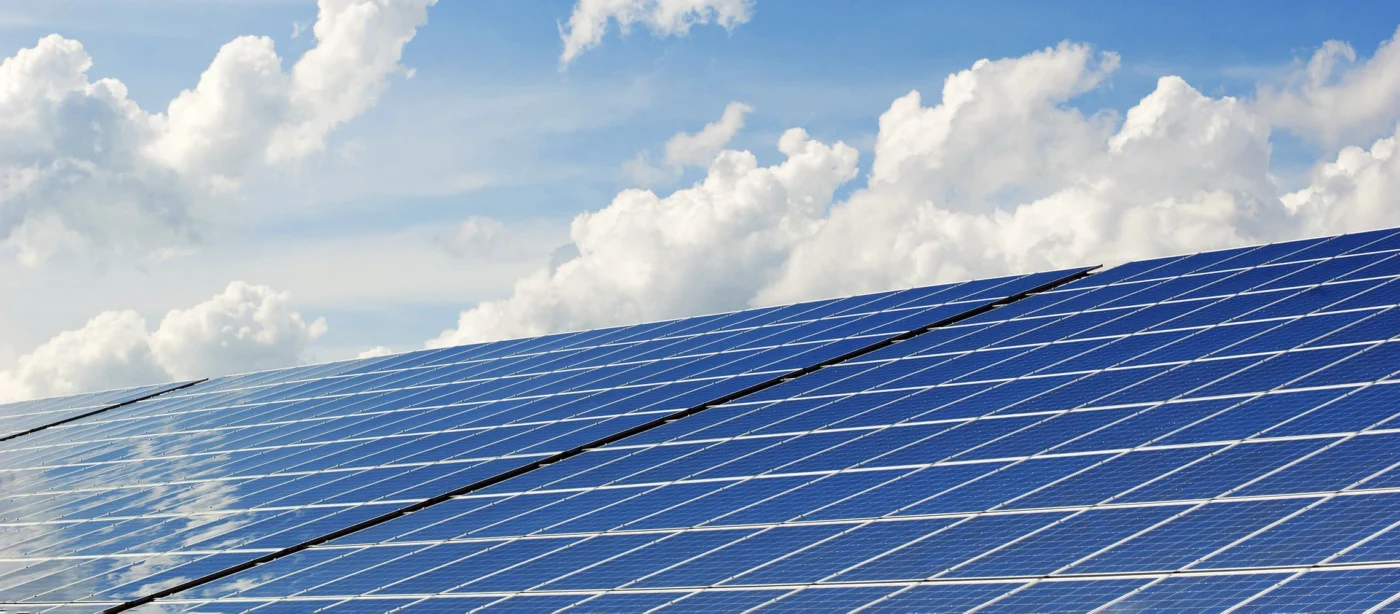
Zonnepanelen zijn een populaire alternatieve energiebron die wordt gebruikt om huizen en bedrijven van stroom te voorzien. Ze zijn milieuvriendelijk, goedkoper, en bieden een langdurige oplossing voor energieproductie. Echter, Het kiezen van het juiste zonnepaneel kan een uitdagende taak zijn, vooral als u niet bekend bent met de technische specificaties en terminologieën.
In dit artikel, Wij zullen u essentiële tips geven om u te helpen een hoog efficiënt zonnepaneel te kiezen dat aan uw energiebehoeften voldoet. We zullen verschillende soorten zonnepanelen bespreken, hun efficiëntie, en factoren die hun prestaties beïnvloeden.
Soorten zonnepanelen
Er zijn drie hoofdtypen zonnepanelen: monokristallijn, polykristallijn, en dunne film.
Monokristallijn
Monokristallijne zonnepanelen zijn gemaakt van een enkel siliciumkristal, waardoor ze het meest efficiënte en dure type zonnepaneel zijn. Ze hebben een uniforme zwarte kleur en zijn gemakkelijk herkenbaar. Ze hebben een efficiëntie van maximaal 22%, wat betekent dat ze kunnen converteren 22% van het zonlicht dat ze ontvangen in bruikbare elektriciteit. Monokristallijne zonnepanelen hebben een langere levensduur van 25 jaren en zijn ideaal voor kleine daken.
Polykristallijn
Polykristallijne zonnepanelen zijn gemaakt van meerdere siliciumkristallen, waardoor ze minder efficiënt zijn dan monokristallijne zonnepanelen. Ze hebben een blauwe kleur en zijn betaalbaarder dan monokristallijne panelen. Ze hebben een efficiëntie van maximaal 18%, wat betekent dat ze kunnen converteren 18% van het zonlicht dat ze ontvangen in bruikbare elektriciteit. Polykristallijne zonnepanelen hebben een kortere levensduur van 20 jaren en zijn ideaal voor grote daken.
Dunne film
Dunne-film zonnepanelen zijn gemaakt van een dunne laag fotovoltaïsch materiaal dat op een substraat wordt aangebracht. Ze zijn het minst efficiënte type zonnepaneel, Maar ze zijn het meest betaalbaar. Ze hebben een efficiëntie van maximaal 12%, wat betekent dat ze kunnen converteren 12% van het zonlicht dat ze ontvangen in bruikbare elektriciteit. Dunne-film zonnepanelen hebben een kortere levensduur van 15 jaren en zijn ideaal voor grote daken en commerciële toepassingen.
Factoren die de efficiëntie van het zonnepaneel beïnvloeden
Verschillende factoren beïnvloeden de efficiëntie van het zonnepaneel. Inzicht in deze factoren kan u helpen het juiste zonnepaneel te kiezen voor uw energiebehoeften.
Temperatuur
Zonnepanelen werken het beste bij koele temperaturen. Hoge temperaturen verminderen de efficiëntie van het zonnepaneel, wat betekent dat ze minder elektriciteit produceren. Daarom, Als je in een heet klimaat leeft, Het is essentieel om een zonnepaneel te kiezen met een lagere temperatuurcoëfficiënt. De temperatuurcoëfficiënt meet de snelheid waarmee de efficiëntie van het zonnepaneel afneemt naarmate de temperatuur stijgt.
Schaduw
Schaduw kan de efficiëntie van het zonnepaneel aanzienlijk verminderen. Zelfs een kleine hoeveelheid schaduw kan een aanzienlijke daling van de energieproductie veroorzaken. Daarom, Het is essentieel om zonnepanelen te installeren in een gebied dat het grootste deel van de dag direct zonlicht ontvangt.
Oriëntatie
Zonnepanelen werken het beste als ze tegenover de zon worden geconfronteerd. Daarom, Het is essentieel om zonnepanelen op het zuiden op het noordelijk halfrond te installeren en naar het noorden op het zuidelijk halfrond te kijken. De hoek waarop zonnepanelen worden geïnstalleerd, heeft ook invloed op hun efficiëntie. De optimale hoek hangt af van uw locatie en de tijd van het jaar.
Kwaliteit van componenten
De kwaliteit van de componenten die worden gebruikt in zonnepanelen beïnvloedt hun efficiëntie en levensduur. Daarom, Het is essentieel om een zonnepaneel te kiezen dat componenten van hoge kwaliteit gebruikt, zoals hoogwaardige cellen en duurzame frames.
Efficiëntiebeoordelingen
Solar Panel Efficiency Ratings meten het percentage zonlicht dat zonnepanelen kunnen omzetten in bruikbare elektriciteit. Hoe hoger de efficiëntie -beoordeling, hoe meer elektriciteit het zonnepaneel kan produceren.
Monokristallijne zonnepanelen hebben de hoogste efficiëntie -beoordeling, gevolgd door polykristallijne en dunne-film zonnepanelen. Echter, Efficiëntiebeoordelingen
zou niet de enige factor moeten zijn om te overwegen bij het kiezen van een zonnepaneel. Andere factoren, zoals de kosten, levensduur, en de grootte van het zonnepaneel, moet ook in aanmerking worden genomen.
Kosten
De kosten van zonnepanelen variëren afhankelijk van het type, maat, en merk van het zonnepaneel. Monokristallijne zonnepanelen zijn het duurste type zonnepaneel, terwijl dunne-film zonnepanelen het meest betaalbaar zijn. Echter, De kosten van zonnepanelen zijn in de loop der jaren aanzienlijk gedaald, ze toegankelijker maken voor huiseigenaren en bedrijven.
Het is belangrijk om de voorafgaande kosten van zonnepanelen te overwegen, evenals de langetermijnkostenbesparingen. Terwijl monokristallijne zonnepanelen vooraf duurder zijn, Ze hebben een langere levensduur en een hogere efficiëntie, wat kan leiden tot hogere kostenbesparingen op lange termijn.
Levensduur
De levensduur van zonnepanelen varieert afhankelijk van het type, Kwaliteit van componenten, en onderhoud. Monokristallijne zonnepanelen hebben de langste levensduur van 25 jaren, gevolgd door polykristallijne zonnepanelen met een levensduur van maximaal 20 jaren en dunne film zonnepanelen met een levensduur van maximaal 15 jaren.
Regelmatig onderhoud, zoals het reinigen en inspecteren van zonnepanelen, kan hun levensduur verlengen en hun efficiëntie verbeteren. Daarom, Het is belangrijk om een zonnepaneel te kiezen dat gemakkelijk te onderhouden is en een goede garantie heeft.
Maat
De grootte van zonnepanelen beïnvloedt hun efficiëntie en de hoeveelheid elektriciteit die ze kunnen produceren. Grotere zonnepanelen zijn over het algemeen efficiënter en kunnen meer elektriciteit produceren. Echter, Grotere zonnepanelen zijn ook duurder en vereisen meer ruimte voor installatie.
Het is belangrijk om de grootte van uw dak of eigendom te overwegen bij het kiezen van een zonnepaneel. Als je een klein dak hebt, Het kan kosteneffectiever zijn om een kleiner zonnepaneel te kiezen met een hogere efficiëntie-beoordeling.
Conclusie
Het kiezen van een hoog efficiënt zonnepaneel vereist een zorgvuldige afweging van verschillende factoren, inclusief het type zonnepaneel, zijn efficiëntie, en zijn kosten, levensduur, en maat. Monokristallijne zonnepanelen zijn het meest efficiënte en dure type zonnepaneel, terwijl dunne-film zonnepanelen het minst efficiënt zijn, maar het meest betaalbaar.
Factoren die de efficiëntie van het zonnepaneel beïnvloeden, zijn temperatuur, schaduw, oriëntatie, en de kwaliteit van componenten. Het is belangrijk om een zonnepaneel te kiezen dat geschikt is voor uw energiebehoeften en locatie en dat een goede garantie heeft en gemakkelijk te onderhouden is.
Investeren in een hoog efficiënt zonnepaneel kan op lange termijn kostenbesparingen bieden en helpen bij het verminderen van uw CO2-voetafdruk. Met het juiste zonnepaneel, U kunt nog jaren genieten van schone en duurzame energie.
